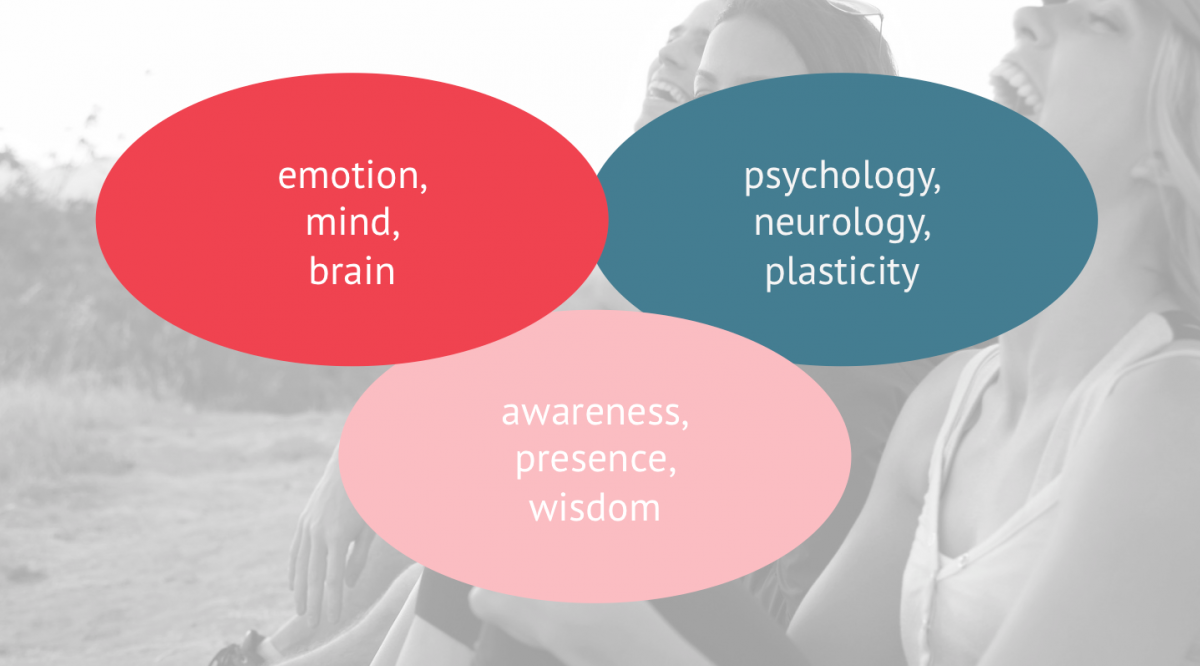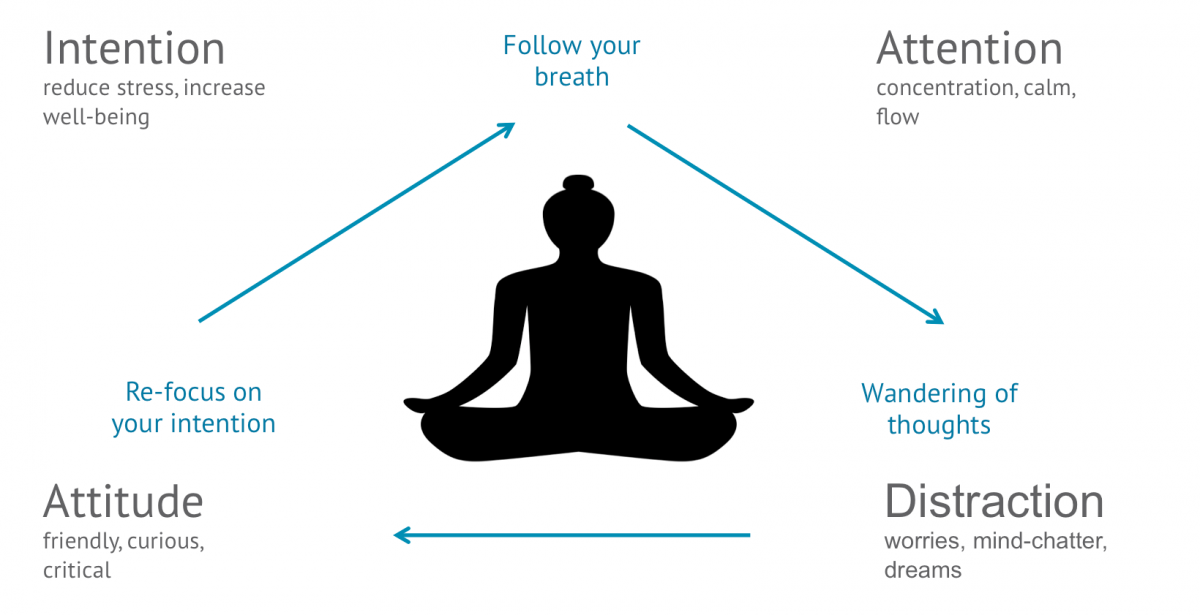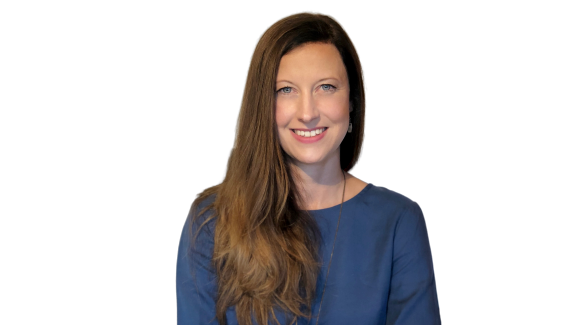Unsere vernetzte Welt verstehen

Change your brain – change the game
HIIG-Doktorandin Martina Dopfer forscht zum Thema Innovation in Startups und etablierten Unternehmen und hat als begeisterte Yogalehrerin das Potential von achtsamem Handeln durch Meditation entdeckt. Dadurch neugierig geworden, begann sie der Frage nachzugehen, ob sich auch Startups und größere Unternehmen über die positiven Effekte von Meditation bewusst sind. In ihrem Vortrag auf der StartupNight in Berlin sprach Martina über die herausragenden Effekte von Meditation auf Unternehmenserfolge und zeigte Wege auf, wie Startups und etablierte Unternehmen mit geringem finanziellen Aufwand das Potential ihrer Mitarbeiter ausschöpfen, Innovationen im Unternehmen antreiben und dabei ihre Gewinne erhöhen können.
Neuroscience shows that the brain is changeable – it is plastic. Mindful action like meditation or yoga are particularly effective ways to change the brain. The question of how startups and established firms could possibly profit from mindful action rises. About 30 years ago, psychologists were increasingly interested in understanding emotions and how they affect the brain. As a consequence, psychologists increasingly applied neuroscientific methods in order to map brain structures. While we will not dig deeper into neuroplasticity here, we will look at some of the core findings of these scientific endeavours (see Fig. 1).
Mindfulness increases happiness
Firstly, a research group around the neuroscientist David Richardson found that mindful action such as regular meditation increases happiness (Davidson et al., 2001). Inspired by the Dalai Lama, Richardson and colleagues found comparably high neuronal activity in the left prefrontal cortex of the Buddhist monk Matthieu Ricart. Besides others, this area is responsible for emotions like happiness. Hence, and in comparison to other participants of their study, the researcher found Ricart to be “one of the happiest people alive” (see Video). By the way, Ricart himself did not particularly like that definition of himself as he thinks that happiness is an underlying emotion that is accessible to everyone (Ricart, 2011).
Lower stress-levels through regular meditation
Secondly, Harvard professor Jon-Kabat Zinn found that regular meditation reduces people`s stress-level in only eight weeks (Zinn, 2016). In fact, he showed that through a combination of yoga practice and meditation the cortisol level produced lowered notably and in the long-term. Put differently, through regular mindful action, people are less stressed and, in essence, less endangered of heart attacks and the like (see also: Davis & Hayes, 2011).
Meditation boosts concentration
Thirdly, Slaghter et al. (2011) proved that regular meditation positively affects focus, concentration, and productivity. In an experimental study, they compared two test groups. The first test group did not meditate daily, the second did. Both groups received a daily task of finding mistakes in form of numbers in a row of letters. Within only five weeks of meditation the participants who meditated regularly notably increased their ability to concentrate on the task, they got it done quicker, and more efficiently. In addition, through brain mapping the study could display how brains change and produce new neurons. Put differently, people can get smarter through regular meditation. (see Fig. 2 for better understanding the process of meditation)
So, let`s raise the initial question again: How can startups profit from those insights into mindfulness and meditation? Given most of this research was conducted in the U.S. it is not surprising that firms close to those research faculties have started to test and implement mindfulness programs.
Google’s mindfulness program: Search Inside Yourself
For instance, Google started their program called Search Inside Yourself (SIY) in 2007 (Tan, 2012). Inspired by the ideas of Daniel Goleman on emotional intelligence (i.e., understanding your own and the feelings of others, and distinguishing among the two) and Jon-Kabat Zinn, they tailored their own mindfulness program. In fact, Google engineers made it their task to develop and implement SIY, which included regular meditation, journaling, and joint reflections. All employees participating in SIY were allowed to meditate daily at the desk or in quiet rooms to calm their minds; journaling should help them to let particular emotions out and thus support self-understanding; and jointly and regularly the participants reflected on how meditation affected their working routines. In essence, Tan (2012) highlights that through tailoring a program for critical minds like engineers and scientists, they managed to increase the level of happiness, collaboration, and efficiency of many Google employees. In other words, if a big firm like Google can profit from mindfulness, how much more easily could a startup thus increase their employees` contentment, team-spirit, and output?
Aetna shows: Mindfulness results in profits for the firm
Aetna’s CEO Mark Bertolini, a persuaded mindfulness practitioner, had the idea to offer a 10-week mindfulness program to the 50.000 employees of his health insurance company (NY Times, 2016). They implemented and regularly monitored their program including regular meditation and yoga in close cooperation with an agency. As a consequence, Aetna reported a 7.3 reduction in medical claims resulting in 9 Mio.USD worth in savings. In addition, they saw an increase of 65 minutes of daily productivity per worker worth 3.000 USD gained a day. In other words, through a low investment of offering yoga and mindfulness, their program increased their employees’ health and productivity, and ultimately led to more profits for Aetna itself. Based on these insights, one is likely to ask whether offering mindfulness programs to startup employees might promptly result in a less stressed and more productive workforce that is likely to increase a startup’s profits?
General Mills: Rated best firm for leadership after implementing mindful leadership programs
General Mills, a U.S. food firm, offers a seven-week mindfulness program including yoga, meditation, and regular dialogue among participants to its leadership (Integral, 2016). Their program was designed and surveyed in collaboration with researchers from the University of Massachusetts. They found that through regular mindful actions, leaders increased their decision-making by 80%, their ability to prioritize by 82% and their performance under pressure by 84%. They also got a lot better at listening. Put differently, mindful leadership can be described as more decisive, open-minded, and empowering. Mindful management of both established firms and startups might hence be more likely to act upon opportunities and risks in an open-minded and innovative way. A worthwhile question arises: Since first startup employees take on various management tasks, could the startup CEO possibly achieve a competitive advantage through fostering a mindful culture of openness, innovation, and collaboration right from the beginning?
CEOs can easily and affordably profit from tapping into the full potential of their employees
This article has shown that mindfulness can increase individual happiness, compassion, and productivity. It has also outlined that mindful methods like meditation and yoga can easily and affordably be implemented as offer of firms to their employees. In fact, low investments can lead to great outcomes such as healthier, more collaborative, and innovative employees — and essentially higher profits. Given those low investment requirements and the few employees startups initially have, implementing mindful actions into their daily routines should be particularly easy and granted with high outcomes for startups. Mindfulness indeed offers startup CEOs a fast track of tapping into the full potential of every employee.
So, why don‘t you start right now to become such a mindful startup that profits from super happy, collaborative, productive, and innovative employees every step on the way.
This is a summary of the presentation given by Martina Dopfer at StartupNight Berlin on September 3, 2016. See the full speech here.
Links and references
- Davidson, R. J. & Harrington, A., eds. (2001). Visions of Compassion: Western Scientists and Tibetan Buddhists Examine Human Nature. Oxford University Press.
- Davis, D. & Hayes, J. (2011). What Are the Benefits of Mindfulness? A Practice Review of Psychotherapy-Related Research, American Psychological Association, 48(2), 198-208.
- Integral (2016). General Mills Leadership Program helps train the Mind,
http://www.integral.org.au/general-mills-leadership-program-helps-train-the-mind, accessed 05.09.2016. - New York Times (2016). At Aetna, a C.E.O.’s Management by Mantra, http://www.nytimes.com/2015/03/01/business/at-aetna-a-ceos-management-by-mantra.html?_r=1, accessed 05.09.2016.
- Ricart, M. (2011).The Art of Meditation. Atlantic Books.
- Slagter, H. et al. (2007). Mental Training affects Distribution of Limited Brain Resources, PloS Biology, 5(6), 138-150.
- Tan, C. (2012). Search Inside Yourself. Harper Publishing.
- Zinn, J. (2016). Mindfulness-based stress reduction, http://www.mindfullivingprograms.com/mbsr_background.php, accessed 05.09.2016.
Dieser Beitrag spiegelt die Meinung der Autorinnen und Autoren und weder notwendigerweise noch ausschließlich die Meinung des Institutes wider. Für mehr Informationen zu den Inhalten dieser Beiträge und den assoziierten Forschungsprojekten kontaktieren Sie bitte info@hiig.de

Jetzt anmelden und die neuesten Blogartikel einmal im Monat per Newsletter erhalten.



